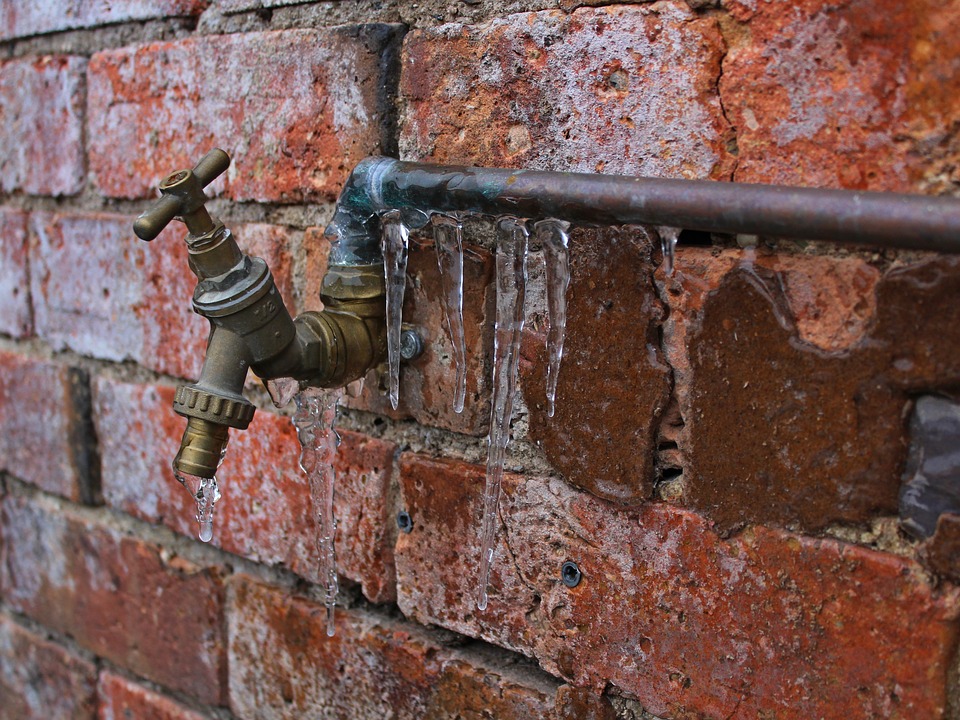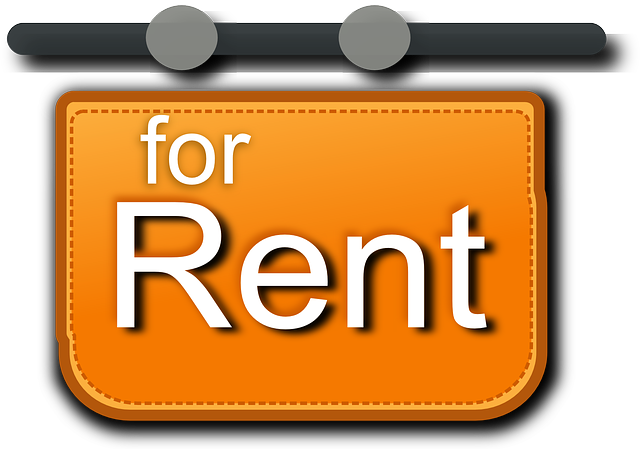
One of the messiest and most costly homeowner repairs is fixing a burst, frozen pipe. Water from a burst pipe can cause damage to carpeting, short out electrical appliances and ruin furniture. Luckily, there are several ways to protect your home:
- Keep the heat in your house at a minimum of 50° F.
- Allow faucets to drip slightly, which can alleviate pressure in the piping system.
- Keep interior doors open. This allows heat from the rest of your house to spread, keeping your pipes warm.
- Seal any cracks and holes found near your pipes. This can help keep cold air out of your home.
- Add extra insulation to your pipes. Experts recommend fitting your pipes with foam rubber or fiberglass sleeves.
Water expands as it freezes and puts significant pressure on the metal or plastic pipes that hold it. If you fail to take the proper precautions, your pipes can easily fail during a cold winter, which can be incredibly costly to repair.
Read more

If you’ve ever shopped around for insurance, you’ve likely been asked if you want to bundle your policies—in other words, combine your home or renters, auto and life insurance policies with the same carrier. Although you have the option to shop around individually for each policy, it almost always makes sense to have the same carrier cover as many of your policies as possible.
Benefits of Bundling
- The discount—Most policyholders bundle their policies because of the promise of a discount. The amount varies by provider but can generally range between 5-25 percent.
- The option of a single deductible—With bundled policies, your deductible may be cheaper in the event of a claim that affects multiple policies. For example, if your home and auto policies are with two separate carriers, and a hailstorm damages your home and your car, you’re responsible for paying both your home and auto deductibles before receiving payment. But if you bundle your policies, your provider may offer you the option to pay only the higher of the two deductibles.
- Less chance of being dropped—If you’ve made claims or gotten tickets, having your policies bundled with one provider can decrease the chance of them dropping you.
-
When it Doesn’t Pay to Bundle
It isn’t always better to bundle your policies with one insurance carrier. Here’s when it may be better to split them up:
- If you have tickets or past claims that make your auto insurance expensive—In this case, it may be cheaper overall to buy each policy from separate providers.
- When premiums increase—Bundling discourages people from price shopping, which makes it easier for providers to increase their rates. Most assume that you won’t go through the effort of shopping around when your policies renew.
- If policies aren’t technically bundled—Some carriers may insure you with an affiliated company. Although you may get a discount with that company, you’ll lose the convenience of paying your premium with one familiar provider.
A Few Tips to Consider
Although discounts are the main reason people bundle their insurance policies, never assume that bundling is the cheapest option. Your needs and circumstances will dictate whether you should combine your policies with one carrier. Consider the following tips:
- Shop for new coverage when your policies renew, and ask for the price of the individual premiums as well as the price of the bundled premium so you can decide whether it is worth it. Just make sure you compare the same coverage when shopping for quotes from each carrier.
- Ask if the provider uses a third-party insurance company. Remember that you may save money but lose the convenience of dealing with one provider and a combined bill.
- Ask an independent insurance agent to get prices from multiple companies so you don’t have to do the legwork. An agent that is loyal to a particular carrier may be able to offer discounts that you can’t get alone.
With multiple factors contributing to the price of your insurance premiums, it is important to shop around in order to get the best rate for your insurance needs. Feel free to contact Scurich Insurance to determine if bundling is right for you and help you take advantage of all available discounts.
Read more

Your commercial insurance policies protect your business, making your insurance agent an essential resource for your company. While you may not have your agent on speed dial, you will want to contact him or her in several circumstances.
Verify Coverage Details
You can purchase a variety of different policies for your business, and need to understand your exact coverage. Contact your insurance agent to verify which types of coverage you have and your policy limits.
Update Your Policy
When you add a vehicle to your commercial fleet, sell a piece of equipment, move to a new location, or make other changes to your business operations, call your insurance agent. These updates could affect your insurance needs, policy and premium.
File A Claim
If you need to file an insurance claim, contact your agent immediately. You may call the agent’s office, send an email or text, or fill out an online claim form on the company’s website. Remember to submit pictures, too, as you get your claim process started.
Ask Questions About a Claim
After you file an insurance claim, you may have questions about the adjuster’s findings or the settlement timeline. Feel free to contact your agent and ask any questions you may have.
Discuss Your Bill
Whether you pay your insurance bill annually, semi-annually or quarterly, you may inspect your bill and realize that you have questions about one of the charges or fees. Most insurance agents remain transparent about billing, and they can explain anything you don’t understand about your insurance charges, fees or payment date.
Pay Your Bill
If you experience any issues when you pay your insurance bill, call your agent. You may also ask for a change in the policy due date or a change in payment frequency.
Initiate an Annual Review
You should receive a notice a few weeks before your commercial insurance policy’s renewal date. Ask your agent for a meeting to renew your coverage. During this meeting, discuss details about your business and the types of insurance you need, including coverage limits and cost, as you verify that you have the right insurance for your needs.
Request a New Quote
Based on your insurance policies you purchase and your loyalty to your commercial insurance company, you may qualify for discounts or a more competitive rate. Your agent can rework your coverage limits, check for discounts and give you a new quote that meets your budget.
Throughout the year, you may wish to contact your commercial insurance agent for several reasons. Always feel free to reach out and discuss your needs as you purchase the right coverage for your business.
Read more

Just a few years ago, taking a trip involved contacting travel agencies, booking hotel rooms and making plans far in advance. Today, however, smartphones and the internet have helped create new sharing services that allow homeowners to connect with travelers and rent out their homes, spare bedrooms or other accommodations for a fee.
Airbnb, the most popular of these sharing services, offers a convenient platform that can provide homeowners with an extra source of income. However, renting through Airbnb can also expose you to substantial risks and leave you with costly property damage and liability claims.
Potential Insurance Gaps
Relying strictly on your regular homeowners or renters insurance policy while hosting guests through Airbnb can lead to significant gaps in coverage. These policies are designed to protect you and your family from everyday risks, and not from commercial renting.
If a renter uses your home for even a small amount of time, you and your family will be exposed to significantly different risks that weren’t considered when your policy was drafted. As a result, most homeowners and renters policies won’t cover property damage that’s caused by Airbnb guests.
If you’re considering renting through Airbnb, your first step should be to contact your insurance broker to review your current homeowners or renters insurance policy. While your homeowners or renters policy may allow you to rent your property to a guest, it’s important to keep in mind that each insurer has its own restrictions and requirements. Some insurers may require advanced notice of any short-term rental, whereas others might insist that you purchase an endorsement to expand your coverage.
If you plan to rent out your residence on a regular basis, many insurance companies will consider this commercial use. In many cases, regular Airbnb hosts will need to obtain a commercial insurance policy in order to be properly insured. However, a growing number of insurance companies now offer home-sharing liability insurance policies that can be purchased on a month-to-month basis.
Issues with Airbnb’s Provided Protection
Airbnb does offer its hosts two forms of protection through its host guarantee program and host protection insurance. While hosts may be inclined to rely exclusively on these programs to manage their risks, there are significant gaps related to these offerings.
Host Guarantee
Airbnb backs every one of its bookings with its host guarantee program at no cost, which will reimburse eligible hosts for damages up to $1 million. However, Airbnb readily admits that its host guarantee is not insurance and should not be considered a replacement or stand-in for homeowners or renters policies.
Moreover, payments through the host guarantee are subject to a lengthy list of terms, conditions and exclusions. Therefore, hosts should be aware of the following issues related to Airbnb’s host guarantee:
- Hosts must attempt to resolve any issues with the guests involved prior to receiving any compensation. This also means that a host would have to make a claim on his or her own insurance policy before the host guarantee would apply.
- Any sum collected from a standard policy or a security deposit would be deducted from the host guarantee.
- The guarantee will only repair or replace covered property that is damaged during the time frame of an online booking.
- This guarantee does not cover certain items including, but not limited to, cash, collectibles, jewelry, pets, watercrafts or any damage to property that is not considered a covered accommodation.
For more information on specific elements of Airbnb’s host guarantee program, hosts can review its terms and conditions in full on the company’s website.
Host Protection Insurance
In addition to its host guarantee program, Airbnb offers coverage to its patrons through its host protection insurance. Airbnb indicates that the program provides primary liability coverage for up to $1 million per occurrence in the event of third-party claims of bodily injury or property damage. Despite these claims, hosts should be wary of relying solely on this insurance program for a number of reasons:
- Intentional acts that aren’t the result of an accident are not covered under this policy. In addition, Airbnb’s home protection insurance does not cover what it refers to as property issues, which can include things like mold, asbestos and bedbugs.
- Neither Airbnb’s home protection insurance nor its fine print is readily available for review. The policy is also subject to limitations, conditions and exclusions. Together, this means that the specifics of these coverages are vague, and Airbnb hosts may not know exactly what’s protected.
- The personal property of any guest is generally not covered. Additionally, any theft or damage caused by a guest may not be covered either.
With Airbnb’s host protection insurance, it’s best to assume that you aren’t equipped with the proper coverage. For full protection, it is likely that you will need to speak with an insurance professional to better understand the policy adjustments you will need in order to be fully covered.
Considerations for Condo Owners and Renters
While Airbnb opens its services to condo owners and renters, multi-unit buildings often have restrictive bylaws, homeowner association rules or lease terms that could impact the ability to host guests through Airbnb.
In many instances, commercial activities like renting out accommodations—even for short periods of time—are forbidden by lease or condo board policies. In some cases, hosts will need to contact their landlord or condo board before subletting or renting out any accommodations. Failure to do this can result in eviction or other forms of legal action.
Even if you’re allowed to rent out your condo or apartment through Airbnb, doing so can cause tension with neighbors. There’s always the potential that your guests may not be respectful to property in common areas, act inappropriately or noisily, or make other tenants feel uncomfortable.
Local Laws and Considerations
In response to the rising popularity of Airbnb, many states, cities and towns are moving to regulate short-term property rentals through their municipal codes or zoning regulations. In some cases, home rental services like Airbnb could be prohibited altogether.
If you break these local regulations, purposely or otherwise, you could face thousands of dollars in fines. What’s more, Airbnb says alignment with laws and regulations is the responsibility of those renting out accommodations. As a result, you need to review your local laws and regulations before using Airbnb to rent out your accommodations.
The Bottom Line
While Airbnb offers a unique and potentially profitable service to users, it’s not without its faults. Before you decide to try it for yourself, be sure to consider all of the risks. For more information on sharing services, or to review your homeowners or renters policy, contact us at 831-661-5697 today.
Read more
 Investing in rental property is an exciting and cost-effective venture for many people. Savvy individuals are able to charge enough rent to offset the mortgage payment of the rental property, allow for maintenance costs and provide a bit of a profit at the end. In order to protect your investment, however, you need to have an adequate amount of insurance.
Investing in rental property is an exciting and cost-effective venture for many people. Savvy individuals are able to charge enough rent to offset the mortgage payment of the rental property, allow for maintenance costs and provide a bit of a profit at the end. In order to protect your investment, however, you need to have an adequate amount of insurance.
Many people assume that their homeowners insurance covers their rental properties as well. It pays to do your research into the subject now before something catastrophic occurs and you find yourself in a financial crisis. Having the right kind and amount of insurance can protect you now and long into the future.
While having homeowners insurance for your rental home is required by almost all lenders who provide you with a mortgage, a traditional policy might not be the best option for your rental property. Here are three points to keep in mind when deciding what type of insurance best suits your needs.
1. Unless you are renting the home out as being fully furnished, you will not need to insure the contents of it. Instead, that responsibility falls to the renter in the form of renter’s insurance.
2. It is highly likely that you will need more liability insurance. With the title of ‘landlord’ comes an increased sense of responsibility. In the event that your tenants are injured while on the property, you will likely need to bear some responsibility. Even if it is due to an event beyond your control, such as the weather, you should plan for the additional responsibility. Your insurance agent can be a valuable guide in this matter.
3. If you are like most landlords, you depend on the rent you receive from your tenants. Consider an insurance policy that specifically protects you from the loss of this income. If you ever experience such a loss, you will be glad to have it.
Read more
 If you rent out residential property, you face a variety of financial risks, everything from damage from fires and windstorms, through fines for building code violations, to a disgruntled tenant who sues you.
If you rent out residential property, you face a variety of financial risks, everything from damage from fires and windstorms, through fines for building code violations, to a disgruntled tenant who sues you.
Landlord insurance to the rescue! These policies cover losses to the property, medical payments for tenants or visitors injured on the premises, and your personal liability for alleged negligence.
The amount of coverage depends on your financial situation. If you’ve taken out a mortgage on the property, the lender will probably insist that you buy a policy large enough to cover the loan balance. As a rule of thumb, the higher the value of the property and the greater the risk of potentially catastrophic liability, the more coverage you’ll need.
Your premium will depend on the type of losses covered and the extent of reimbursement. If you choose comprehensive or all risk coverage (which will pay for damage from all causes unless specifically excluded), your cost will be higher than if you buy “named perils” coverage (which covers only losses due to specific causes). Expect a higher premium for replacement value, which will reimburse you fully for rebuilding your property, than for actual cash value coverage, which will pay only the value of the property, less depreciation.
You can also reduce your premium by increasing the deductible (which usually range from $100 to 5% of the building coverage).
Optional coverages include repayment for rental income lost if the property becomes uninhabitable, and for risks of doing business with tenants, such as legal fees and liability against claims for libel, slander, and discrimination.
Our personal insurance specialists would be happy to help you choose the landlord coverage that offers the best value. Just give us a call.
Read more






